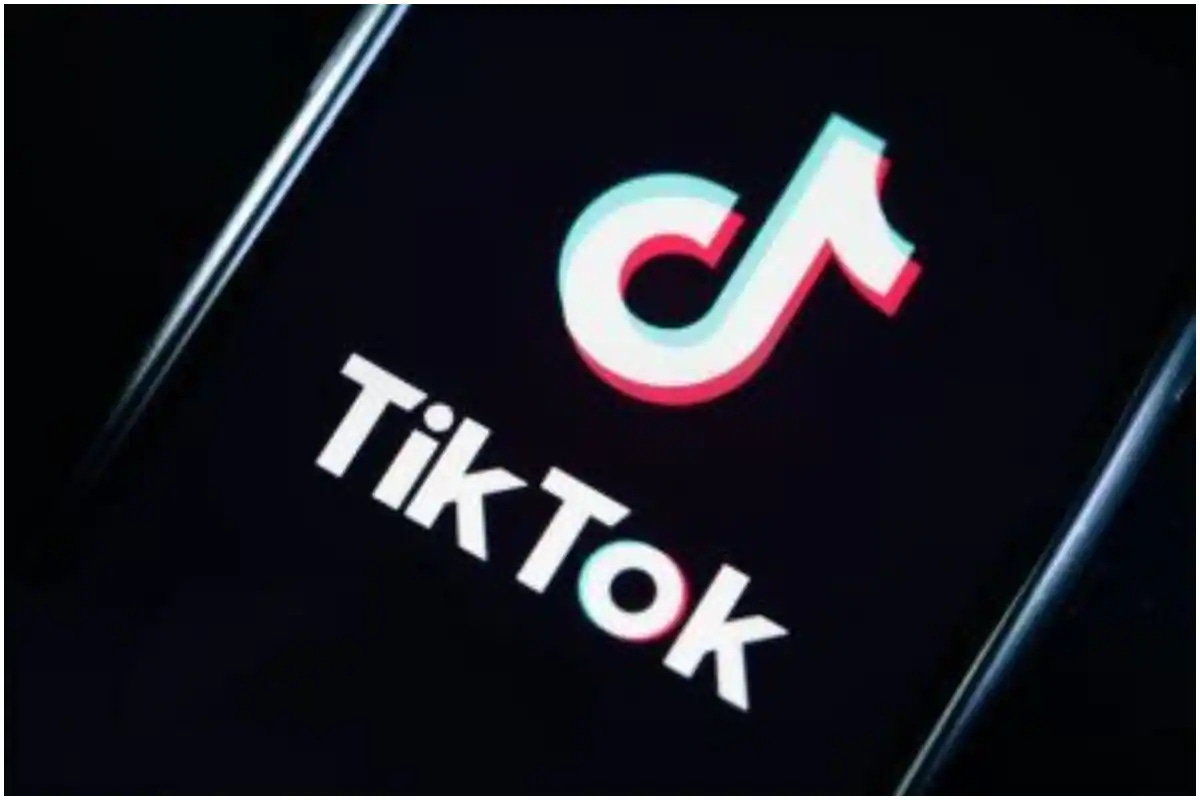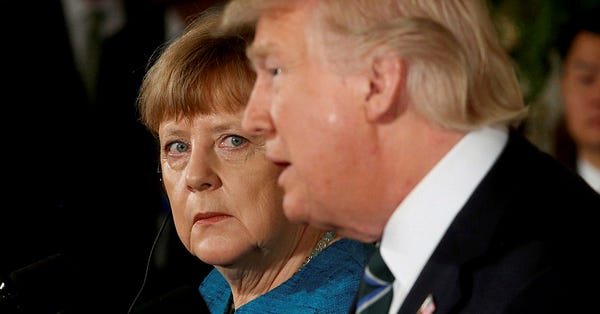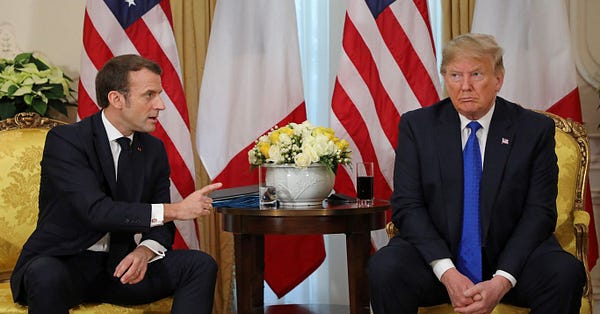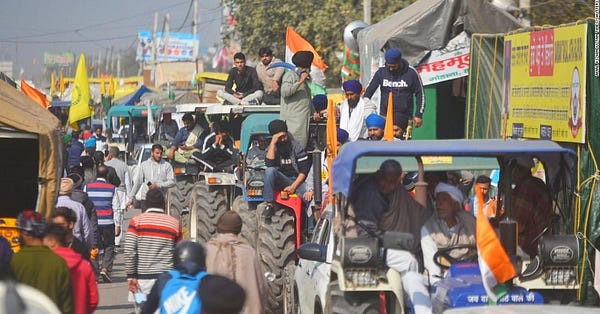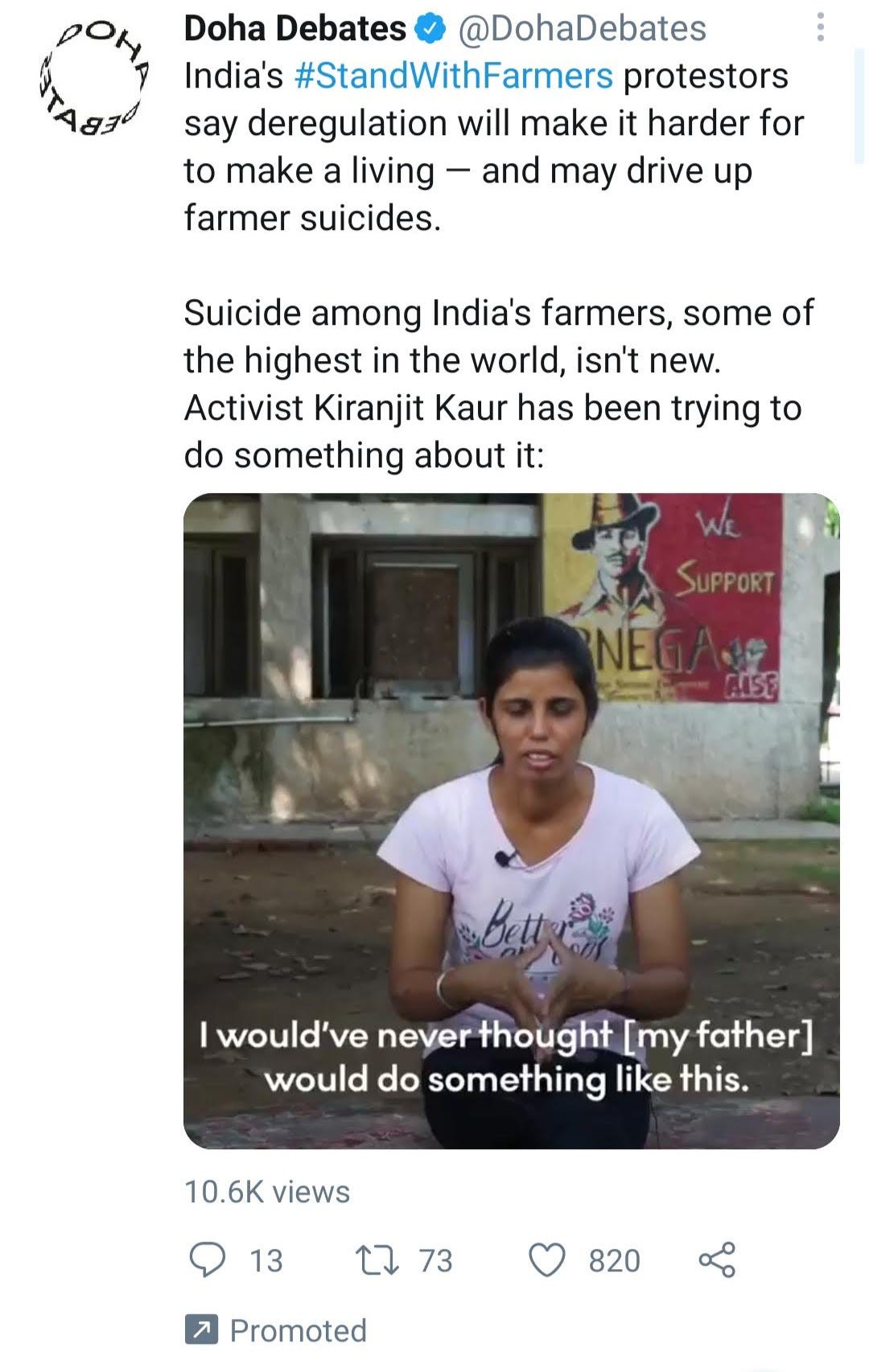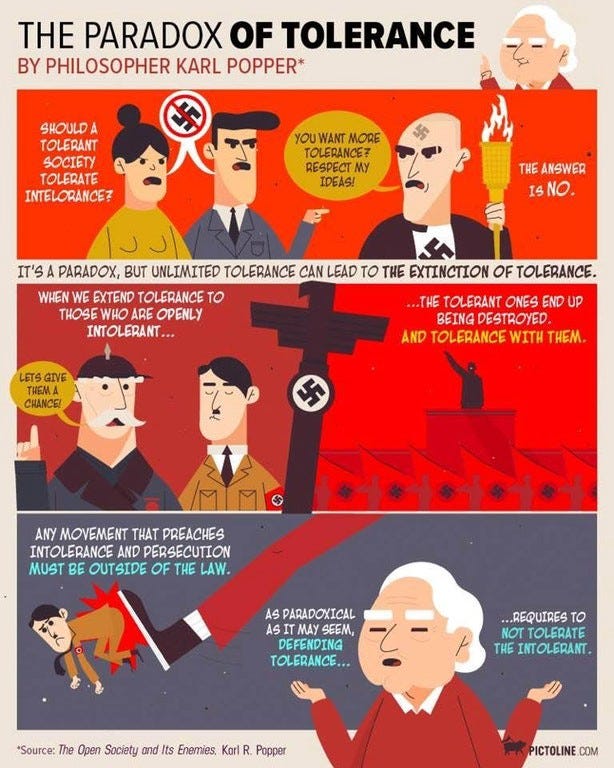The Question of Cyber Sovereignty
India’s pursuit of cyber sovereignty will likely define the next decade.
The ban of TikTok along with 59 other Chinese-made applications is likely the first step in what is going to be a decade long process of asserting Indian Cyber Sovereignty. While the immediate prompt for the ban was to impose costs on China for its intrusions in Ladakh and elsewhere, the action was later followed by another ban on 43 other Chinese-made applications, then a tiff with Twitter over Freedom of Speech laws and concurrently, concerns were raised over the privacy terms of WhatsApp.1 Some weeks before, Over The Top (OTT) platforms as well as digital media were officially designated to be regulated by the Ministry of Information and Broadcasting. The conversation that followed has focussed particularly on how Twitter was wrong or right, or solely on the lack of legislative coherence in India. The big picture though, makes it pretty clear that India is headed inevitably to a serious confrontation with so-called ‘Big Tech’ and Social Media giants.
There are indeed a lot of internal conversations regarding the extent of the power of the Government of India should exercise on its citizens and the need for a comprehensive legislative framework. Those discourses however, should not be overshadowed by the need to assert Cyber Sovereignty of the Republic.
Why Breakup the Internet?
The time when the Internet was an open wonderland where the sun never sets has long been a utopian dream. China initiated the building of its comprehensive internet censorship regime in 1998, now known as the “Great Firewall of China”. Other Authoritarian regimes such as Turkmenistan, Syria, Iran and more impose controls since the 2000s. This censorship was guided by the fear that social and civil unrest can be fuelled by the medium. This has changed radically in the past decade with the imposition of controls over Internet access becoming prevalent in democratic nations as well. This is however not guided wholly by the fear of civil or political unrest, but majorly by concern over the influence of foreign agents in domestic communication. The ability of foreign networks and platforms to influence discourse in a given nation has raised alarm bells in almost all democracies.
After a sitting United States President was banned from Twitter, Facebook and virtually every platform by Big Tech + Social Media Giants (Let’s call them the Great Internet Monopolies) following civil unrest, many European Leaders expressed concern or attacked Twitter and others for its actions:
That a foreign entity, even from a friendly country whose militaries are in a close military embrace can influence politics and de-platform or restrict any political group or leader will not be acceptable for these nations. As Individuals, we may have incentives for a free and open Internet, but as a society or a nation-state, we have limited incentives in a continued open Internet. Restricting the ability of foreign news agencies, influences, and most importantly social media becomes a matter of national security and strategic autonomy.

There is another paradox in this issue as well: Russia and China have used the open approach of Western Democracies to its own advantage while successfully restricting the ability of western entities to influence their own domestic discourse.
This is a variation of Popper's Paradox: that for Tolerance to be possible, the intolerant must not be tolerated.2 This in Internet terms means that only those nations that allow an Open Internet should be allowed to access the Open Internet of other States. This of course still faces problems - the ability of Americans to influence domestic discourse in any European nation or an Asian ally like Japan is unlikely to be welcomed and likely only to be barely tolerated. What can be stated without compromise is, however, that one-sided influence of Internet platforms or agencies from Russia or China will not be acceptable, and their ability will be restricted if not fully banned by other Nations.
This is also the context in which data localisation (the sort of which India is proposing) and restriction on the posting of news links (the sort which Australia is proposing) is made. The digital economy has too much strategic value today for it to be left to wholly international forces. The control of citizen’s data is crucial to national security. A nation ignoring this is likely to pay a heavy price in the future. The popularity of TikTok, whose data was liable and most likely regularly accessed by the Chinese Regime, or its rampant censorship of anti-Chinese Sentiment is extremely unnerving. It is inevitable that democracies with interest in ensuring its security and perseverance take action. The Open Internet is dead, and China killed it.
Asserting Cyber Sovereignty
TikTok has been the first victim of the Indian Republic’s quest for Cyber Sovereignty. But it is likely going to be the first in a long line in the coming decade. Twitter’s decision to selectively censor accounts after a Government order, as well as its defiant tone in public prompted the Union Law Minister to warn the company and all social media platforms to follow Indian law in the Upper House of the Parliament. This standoff was followed by the Government encouraging the use of a native Twitter alternative ‘Koo’, in a blatant threat to Twitter. The Indian Government will likely give domestic platforms more than a leg up in coming years. While the issue at hand for Twitter was over the restriction of free speech at first glance, the now- famous (or infamous) tweet by Rihanna on the farmers protests is also likely to have had an effect.
The ability of foreign agents to influence domestic discourse is a threat that no nation takes lightly. Tweets from celebrities are one thing, but consider the news and tweets that Twitter chooses to highlight on many occasions, and the potential for abuse by other nations or by the platform itself is apparent. For example, the tweets highlighted by twitter following the Bose portrait controversy a few weeks ago:


Another more blatant example is the highlights that it chooses to send out - or similarly the tweets that it allow promotions for - example:

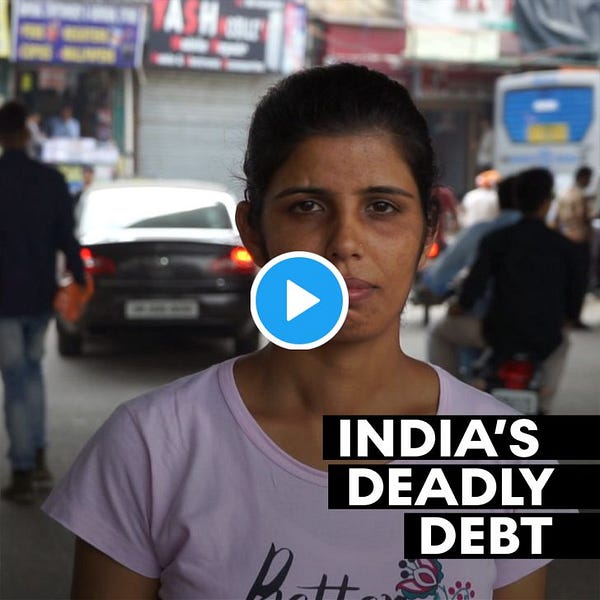
This tweet was made by a network programme supported and funded by the Qatari Government, and this tweet appeared as an Ad for me:
This tweet is not disinformation, but it encourages a certain view on an issue of a domestic problem. It would be easy enough to justify taking down disinformation but Twitter has shown specific reluctance to take down such information based on its source. However, foreign agents promoting a certain domestic view without oversight should not be acceptable either.3 I am not advocating that only Indian citizens be allowed to access social media in India - but it is only logical to restrict the ability of paid promotions or the reach of foreign players from accessing the domestic audience. Illogical commitment to a principle of Open Internet would not serve us well when there are hostile players waiting to take advantage. This is the same fear raised in the United States following the 2016 Presidential Election. Since these Great Internet Monopolies are based out of the US, the ability to take action is quite straightforward. But for India or any other nation, the issue is not as simple. The issue of whether they ought to be broken up due to their monopolistic practices become secondary to whether or not foreign platforms should be allowed to function in India itself. At the very least, data localisation as well as full compliance with domestic oversight is required.
But to fully assert some form of cyber sovereignty, most of the domestic discourse has to shift to domestic platforms which will most likely be encouraged by the Government of India.
There are broader issues of how Big Tech such as Google and Amazon operate that can likely endanger domestic interests as well. Consumer interest cannot be the sole guiding force anymore as national interests in regulating the digital economy takes center-stage. The issue of how OTT platforms completely circumvent the film censorship regime is also apparent. While as free speech advocates might cheer, the access of ‘adult’ content to prepubescents or to teenagers is not welcome. Similarly legal standards of ‘free speech’ vary, not to mention cultural or social standards. The Netflix released film ‘Cuties’ easily breaches the barrier for what would be considered legally or otherwise acceptable in India. The sphere will undoubtedly be subject to regulation - as both domestic and international platforms have captured substantial bases in India. The issue of regulation of digital media also merits attention, though this is more relevant in a domestic context. 4
International cooperation on thwarting these Great Internet Monopolies are also on the horizon, regardless of the hegemonic power of the United States. Australia has already sought Indian support in dealing with issues relating to its new media law and the blanket ban on news items imposed by Facebook.5 No nation will have an incentive to continue unfettered access to its domestic network by primarily American companies.
India and other democratic nations will never impose the form of all-encompassing censorship of information from outside the way China does. But it is likely to heavily regulate the ability of foreign platforms, websites or agents. This is inevitable in the course of things as Internet penetration increases. The Great India Firewall will not be about censorship but about restricting access to foreign agents and players.
Meanwhile, there is substantial legislative work to be done, as the Information Technology Act is wholly unsuited for the Internet as we know today. We need to ensure the rights of Indian citizens as protected at the same time as ensuring foreign players do not have an outsized role. Too much of our English-language media discourse has been focused on the former aspect and not the latter. When more severe action is taken out of necessity, we ought to understand the context of this action.
The Internet has been fracturing for quite some time, and this is only likely to increase in coming years. The trend is wholly irreversible and borne out of States adapting to a new technology and its impact on the world.
India is arguably the first nation to fire back against China’s undeclared war on the Internet. Alas, we will engage in quite a bit of ‘friendly fire’ as well, as the battles have just started. The war is yet to begin.
Special Thanks to Aishwarya Ajayan, Sharath Chandupatla and my Amma for their inputs and editing.
The last of which is not dealt with here - but in summary, the terms of service of WhatsApp have changed for better integration with facebook, which set off a controversy over the application of data controls. Arguably, this is because India (still) lacks a proper legislative framework for data protection of citizens.
A similar issue is of course the problem with Foreign funded NGOs, but that is a wholly different matter.
Though how foreign entities like Al-Jazeera and BRUT operate in Indian Social Media sphere needs to be taken into account.
The Australian legislation would force Google and Facebook into relationships with News media to host their content on their platform. Further Reading: Explained: In Australia vs Facebook, issues affecting media everywhere




